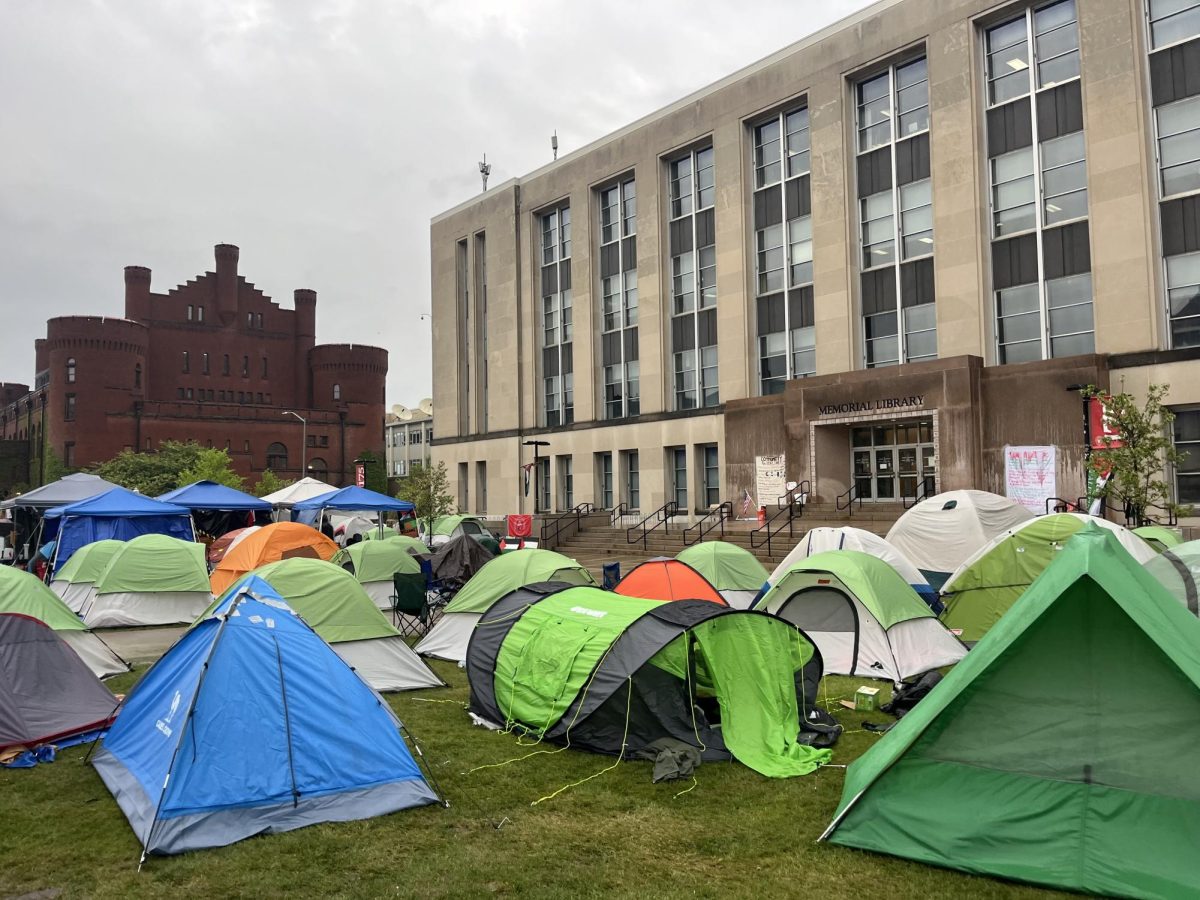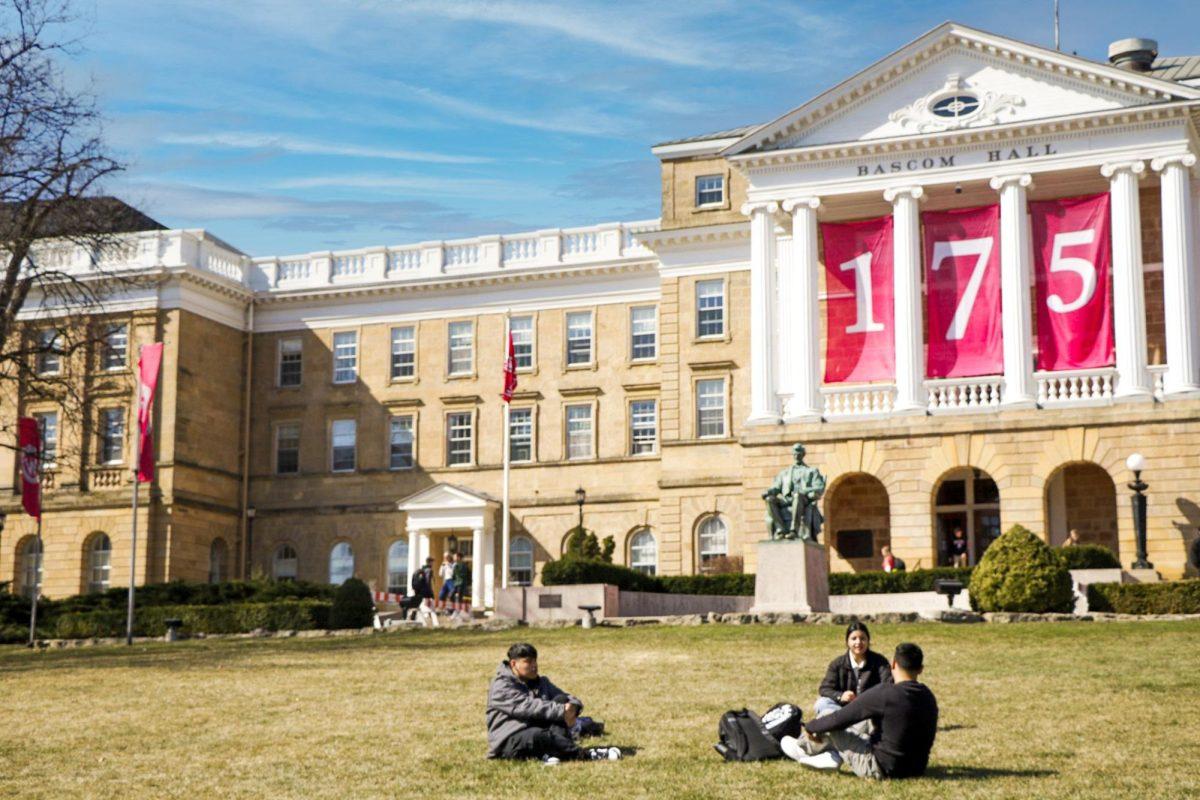
Independent journalist and social media researcher Anna Day addressed a crowded Red Gym yesterday about how social media gives countries in peril an outlet to organize and speak out, as well as her personal experiences living in the Middle East.
Day, a University of Wisconsin alum, reported firsthand on the Arab Spring revolutions. In Egypt, she said she observed how social media had an immense impact on organizing and perpetuating a revolution.
Using a YouTube video of a female Egyptian revolutionary, Day conveyed the realities of life in the Middle East. The woman in the video used it as a form of communication to organize fellow citizens to meet in an effort to stand up for their human rights.
“Her words still make me tremble,” Day said.
Day said the video was an example of how people in the Middle East have powerfully impacted their society through their use of social media.
Sabi Atteyih, a Madison resident who attended the talk, noted activists have to try to incorporate everyone and anyone, as the Egyptian revolutionary explained in her video.
“If one person can walk and has access [to other people], they need to walk next door and knock on the door and get people involved,” Atteyih said. “[They] need to do something.”
Day also described the violence she observed in Egypt, including brutality, rape, torture and the sodomizing of prison inmates by prison guards.
In addition, she addressed a quality of fearlessness in citizens to stand up to the injustices they had experienced.
The citizens were often women who helped spur non-violent resistance against government regimes through social media, Day added.
A specific example she drew upon was from the small country of Bahrain.
Bahrainian people effectively used social media such as Twitter, YouTube and Facebook to their advantage, she said.
Day said citizens would also go online and start trending their own topics, tweeting at Oprah and other celebrities in hopes of receiving attention, an endeavor that was successful. She said because there were so many persistent protesters, they were able to obtain the help they needed.
This sort of persistence is a lesson activists in the United States could learn from, Day said. She noted there are still a lot of issues in the United States concerning racism, sexism and poverty that need to be addressed.
“A lot of things we like to pretend we’ve passed, we really haven’t,” Day said.
She also thinks activists have the power to draw attention to injustices at home and abroad, similarly to the use of social media from the Bahrainians.
The only issue, she said, lies in the fact that U.S. injustices could require a fundamentally different approach.
Day said in learning about how Twitter allowed Bahrainians to have such an impact and other instances, activists in the U.S. and around the world could reshape their social media strategies.


















